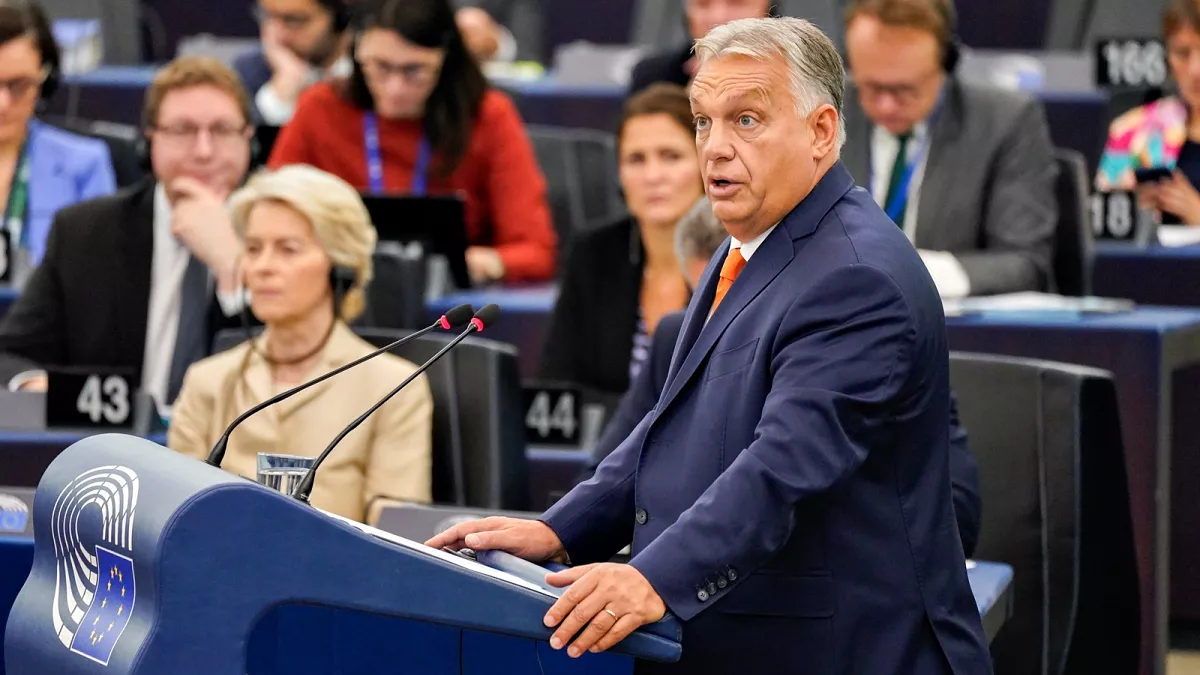Orban’s presentation on Hungary’s EU presidency: call for Serbia’s EU accession and confrontation with von der Leyen

Photo: Ursula von der Leyen and Viktor Orbán
The presentation of Hungary’s EU Council Presidency priorities by Prime Minister Viktor Orbán in the European Parliament on 9 October included a call to fulfill EU promises to the Western Balkans and a special focus in Serbia. “We must focus especially on Serbia. Without Serbia, we cannot stabilize the Balkans until Serbia is not a member of the European Union. The Balkans remain an unstable region,” said Orban.
The presentation of the Hungarian presidency plans escalated into a confrontation with Commission President. Ursula von der Leyen sharply criticized Hungarian Prime Minister Viktor Orbán for backing Russia in its war against Ukraine, marking an unprecedented confrontation between the Commission President and a national leader
Why is this significant: Hungary, under Prime Minister Viktor Orbán, has been frequently criticized by the EU for democratic backsliding. As a result. Hungary’s strong advocacy for enlargement could be viewed with skepticism because it could appear to champion mainly countries, like Serbia, with similar governance issues. Hungary’s perceived closeness to Russia complicates its stance on enlargement, particularly when it supports countries that are not fully aligned with the EU’s foreign policy objectives, including on Russia and Ukraine.
Context: Viktor Orbán outlined his priorities to the European Parliament by focusing on stricter migration controls and improving Europe’s competitiveness, but these topics soon faded in the plenary discussion. Following Orbán’s remarks, European Commission President Ursula von der Leyen sharply criticized Hungarian Prime Minister Viktor Orbán for backing Russia in its war against Ukraine.
“There are still some who blame this war not on the invader but on the invaded,” von der Leyen said. “Would they ever blame the Hungarians for the Soviet invasion of 1956? Or the Czechs and Slovaks for the Soviet repression of 1968? Or the Lithuanians for the Soviet crackdown of 1991?” she added. Orbán dismissed the historical comparison as “a complete mistake.”
Von der Leyen criticized Hungary’s program that eases visa restrictions for Russians and Belarusians, as well as an agreement between Budapest and Beijing allowing Chinese police officers to patrol alongside their Hungarian counterparts.
“How is it possible that the Hungarian government invites Russian nationals into our Union without additional security checks? This makes Hungary’s new visa scheme a security risk not just for Hungary, but for all member states,” she said.
“And how can the Hungarian government allow Chinese police to operate on its territory? This is not defending Europe’s sovereignty; it opens the door to foreign interference,” von der Leyen added.
She also highlighted Hungary’s continued dependence on Russian energy, noting that many EU countries have reduced their reliance in response to Russia’s invasion of Ukraine.


